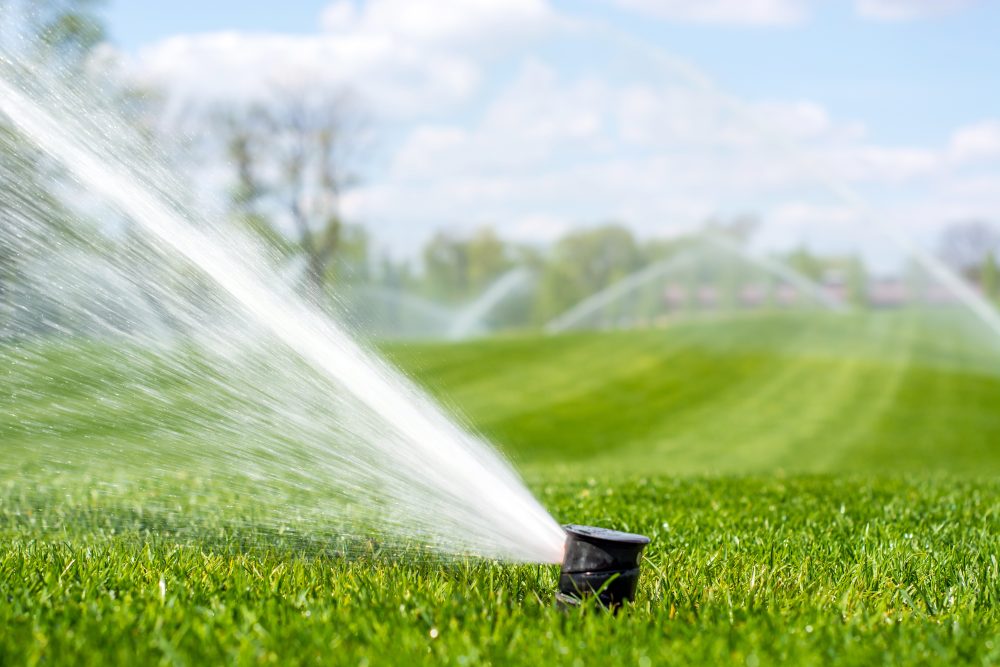Water Management: Smart Landscaping Solutions
Your monthly water bill arrives, and you wince at the irrigation costs that seem to climb higher each summer. Meanwhile, local water restrictions leave you wondering how to maintain a beautiful landscape without breaking the bank or contributing to water waste. You’re not alone in this challenge—homeowners across the country are seeking smarter ways to balance gorgeous outdoor spaces with responsible water use. The good news is that innovative landscaping for efficient water management isn’t just about surviving drought conditions anymore.
It’s about creating resilient, beautiful gardens that thrive while using significantly less water than traditional landscapes. When done right, water-smart landscaping can reduce your outdoor water consumption by up to 50% while actually enhancing your property’s curb appeal and value. At Metro Lawn Care, we’ve helped countless homeowners transform water-hungry landscapes into efficient, stunning outdoor spaces that perform beautifully year-round while dramatically reducing irrigation costs.

Soil Health Creates Water Savings
Your soil acts like a savings account for water, and improving its structure pays dividends throughout the growing season. Clay soils that drain poorly can waste water through runoff, while sandy soils let precious moisture slip away too quickly. By incorporating organic matter and ensuring proper drainage, you create soil that holds just the right amount of water for plant roots while preventing waste.
Strategic Plant Selection Makes All the Difference
Native and adapted plants have evolved to thrive in your local climate, requiring minimal supplemental watering once established. These plants don’t just survive—they flourish with natural rainfall patterns. Drought-tolerant perennials like ornamental grasses, sedums, and native wildflowers create stunning displays while dramatically reducing irrigation needs.
Smart Irrigation Technology
Today’s irrigation systems go far beyond basic timers. Smart controllers use weather data and soil moisture sensors to deliver precisely the right amount of water when plants need it most. Drip irrigation systems deliver water directly to root zones, eliminating the waste associated with traditional sprinkler systems that water sidewalks as much as plants.
Mulching Strategies That Work
A properly applied layer of organic mulch acts like a protective blanket, reducing soil temperature and slowing evaporation. This simple technique can cut watering needs by 30% while suppressing weeds and gradually improving soil health as the mulch decomposes.
Creating Microclimates
Strategic placement of trees and shrubs creates natural shade patterns that reduce water stress on sensitive plants. Grouping plants with similar water needs together—a practice called hydrozoning—ensures efficient irrigation without overwatering some areas while underwatering others.
Hardscape Integration
Patios, walkways, and decorative stone features reduce the total planted area requiring irrigation while adding visual interest. Permeable paving materials allow rainwater to infiltrate rather than running off, naturally recharging groundwater supplies.
Rain Harvesting Opportunities
Simple rain collection systems can provide supplemental irrigation during dry periods. Even modest rain barrels connected to downspouts offer an eco-friendly water source for container plants and flower beds.
The Long-Term Benefits
Water-efficient landscapes typically require less maintenance once established, translating to lower long-term costs for both water and upkeep. These gardens also tend to support more beneficial wildlife, creating mini-ecosystems that enhance your outdoor living experience. Property values often increase with well-designed, sustainable landscapes that appeal to environmentally conscious buyers.
Recent studies show that professionally designed water-smart landscapes can maintain their beauty while using 40-60% less water than conventional designs. The initial investment in soil improvement and appropriate plant selection pays for itself through reduced utility costs and minimal replacement needs.
Your journey toward more efficient water management doesn’t have to mean sacrificing the outdoor space of your dreams. With thoughtful planning and the right techniques, you can create a landscape that’s both stunning and sustainable. Metro Lawn Care specializes in designing and installing water-efficient landscapes tailored to your specific needs and water management preferences. Contact Metro Lawn Care today for a consultation, and let’s explore how innovative landscaping solutions can reduce your water bills while enhancing your property’s natural beauty.
